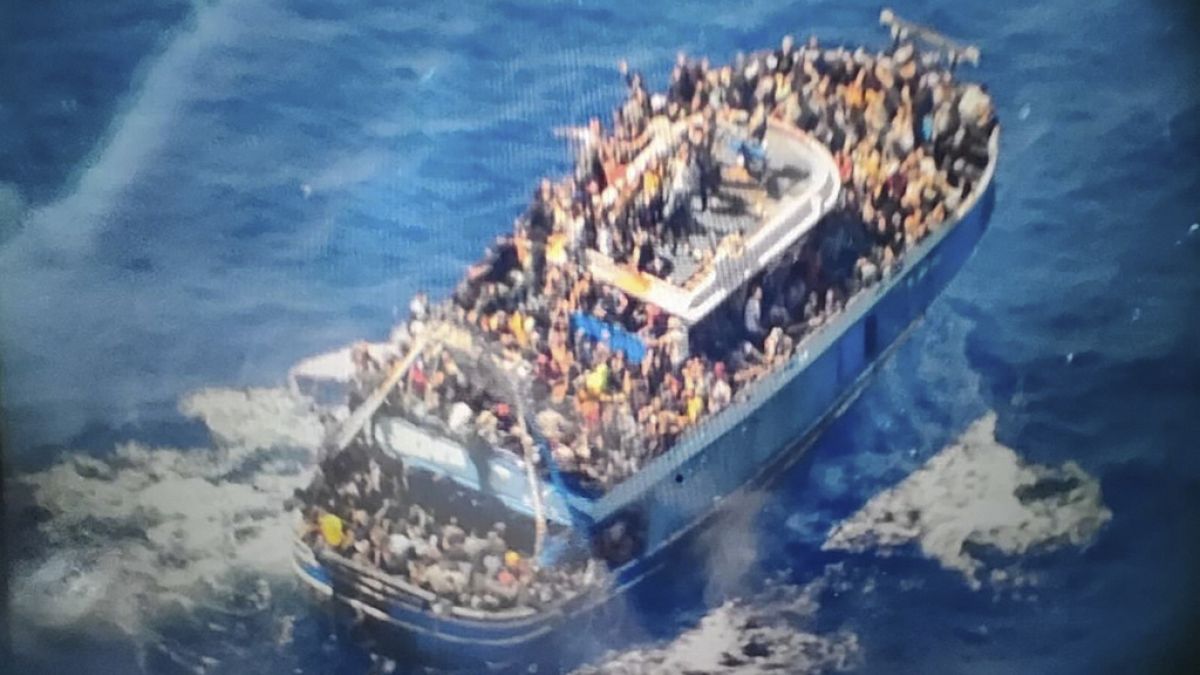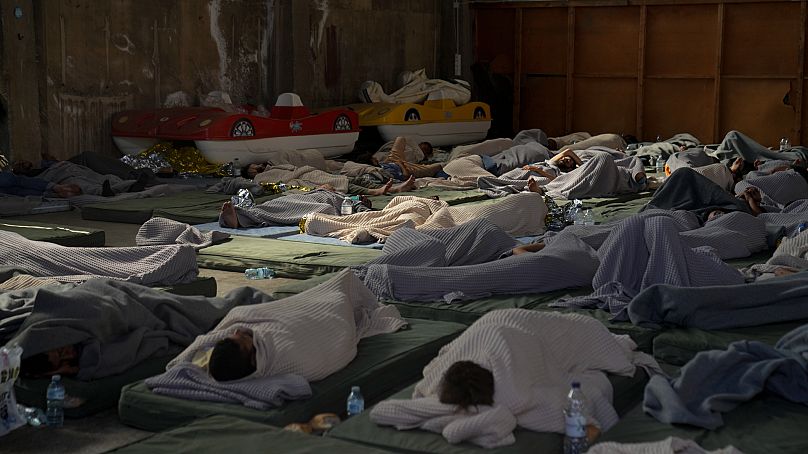
Two leading human rights groups have accused the Greek government of failing to properly investigate a devestating migrant shipwreck.
In a joint report, Amnesty International and Human Rights Watch said “little meaningful progress” has been made in examining allegations the rescue mission was delayed and mishandled.
Up to 750 people were believed to have been crammed into the “Adriana,” a rusty fishing trawler that sank on June 14 southwest of the Greek mainland. It was travelling from Libya to Italy.
Following the sinking, 104 people were rescued — mostly from Syria, Pakistan, and Egypt — and 82 bodies were recovered. The rest are missing, presumed dead.
The two rights groups said they interviewed 21 survivors and five relatives of people still missing as well as representatives of the Greek coast guard and police.
“The survivors and the families of the missing and dead deserve a full accounting of what happened,” Judith Sunderland, an associate director at Human Rights Watch for Europe and Central Asia, said.
“Our research confirms that a catalogue of failures led to the fatal shipwreck,” Sunderland continued.
The vessel was clearly “overcrowded, unseaworthy, and in danger” hours before it capsised, she said.

Some survivors have disputed claims by Greek officials that people on the trawler refused offers of assistance.
The allegations triggered the launch of an independent investigation last month by Greece’s state ombudsman.
It said the coast guard failed to conduct its disciplinary investigation into the agency’s response on 14 June.
In September, 40 survivors initiated legal action against Greek authorities.
There was no immediate reaction from Greek authorities to Thursday’s report.
Greek officials have described criticism of the coast guard as unfair and maintain that blame should squarely fall on smugglers who put migrants onto dangerous, unseaworthy boats.
The coast guard has denied claims made by some survivors that it made a failed attempt to tow the vessel before it sank.





